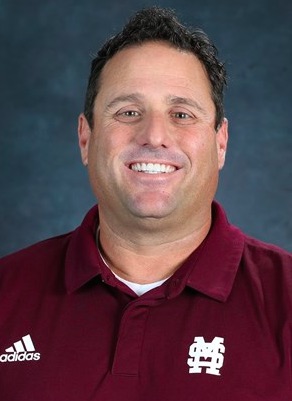Mississippi Today
College baseball is back, so whose turn is it in Mississippi?

College baseball is back, so whose turn is it in Mississippi?
In 2021, Mississippi State baseball won its own regional, then its own super regional and then its first-ever national championship, painting Omaha maroon and white in the process.
In 2022, Ole Miss sneaked into the NCAA Tournament as the last at-large team chosen, won the Coral Gables regional, white-washed Southern Miss in the Hattiesburg Super regional, before a full-scale Rebel invasion of Omaha. Mike Bianco's Rebels won the national championship, sweeping Oklahoma in the championship series.
And so, you ask, what can Mississippi's Boys of Spring do for a 2023 encore? Let's put it this way: Expectations are sky-high.
Can Ole Miss, despite losing the legend named Tim Elko, repeat? Can Mississippi State bounce back from last year's aberrational 26-30 finish, which included an unsightly 9-21 record in the Southeastern Conference? Can Southern Miss, which won 47 games and its own regional last year, take its turn in college baseball's Omaha spotlight?
As we saw last season when Ole Miss vaulted from a 22-17 record (7-14 in the SEC) on May 1 to the national championship on June 26, just about anything is possible in college baseball. The team that lost to Southeast Missouri 13-3 on April 19 for its seventh defeat in nine games somehow won a national championship.
That's why hope really does spring eternal in college baseball — especially in Mississippi. All three of Mississippi's Division I baseball powers open at home this weekend. Ole Miss takes on Delaware for a three-game set that will feature three days of celebrating last year's championship. Southern Miss plays host to a strong Liberty team, which has advanced to the NCAA Tournament three consecutive years. And Mississippi State hosts VMI (16-40 a year ago) from the Southern Conference.
Let's take a brief look at all three.
Ole Miss
If you are looking for reasons why Ole Miss won't repeat, look no further than these: Elko, Kevin Graham and Justin Bench. All three were uber-productive last season. All three were leaders. All three are gone. Elko led the national champs in home runs (24), runs batted in (75 in 65 games) and slugging (.642). Graham hit .335 with 11 home runs and 51 RBI. Bench was Mr. Dependable, hitting .312 with 17 doubles and 42 RBI, while playing excellent defense wherever Mike Bianco needed him. That's an awful lot to replace. The Rebels also lost their No. 1 starter Dylan DeLucia and closer Brandon Johnson.

But if you are looking for reason not to write these Rebels off, there are plenty, starting with All-American shortstop Jacob Gonzalez and left-handed ace pitcher Hunter Elliot, who will lead what could be a deeper pitching staff than the one that won the national title.
Replacing Elko's power largely will fall on Kemp Alderman's broad shoulders. He hit 11 dingers last year and just might double that this year. Gonzalez also will look to increase his total of 18 homers a year ago.
Newcomers to watch: Tulane transfer outfielder Ethan Groff, who hit .404 last season, can steal a base and will likely hit at the top of the Rebel lineup; Northwestern first baseman Anthony Calarco (.325, 13 HRs 54 RBI); and Delgado Community College outfielder Ethan Lege (.399, 36 RBI). Pitching-wise, look out for freshman Grayson Saunier, who could well be this year's Rebel version of Hunter Elliot.
Southern Miss
Enthusiasm for Southern Miss baseball is at an all-time high. The home season is sold out before the season even begins. Southern Miss starts the season ranked in all the college baseball polls, unusual for program that normally has to play its way into the Top 20. That's what happens when you win 47 games, your own regional over LSU, and return nearly all of your everyday lineup. No telling where the Golden Eagles would be ranked if likely MLB first round pick Hurston Waldrep hadn't transferred to Florida.
Pitching depth is a huge concern since the Eagles also lost senior starter Hunter Riggins, plus a school record five pitchers in the MLB draft, including much of a dependable bullpen. Pitching coach Christian Ostrander is often referred to as the Wizard of Oz and he will need to live up to that nickname with so much mound production gone from a year ago.

But head coach Scott Berry has plenty back, including All American right-handed starter Tanner Hall and the everyday players who hit 65 of the team's 82 home runs a year ago. Hitting-wise, this will be a veteran team that already has experienced much success at the college level.
Pitching-wise, some young arms, including freshmen, must come through, including Mississippi's Gatorade Player of the Year Nick Monistere of Northwest Rankin and Benton Academy's JB Middleton, both hard throwers.
Newcomers to watch: Centerfielder Matthew Etzel, a highly touted transfer from Panola, a speedster who tore up the MLB Draft League last summer; left fielder/DH Tate Parker, who led Pearl River to the national junior college championship last spring; and second baseman Gabe Lacy, who hit .329 with 12 home runs and 63 RBI for Tennessee Tech last season.
Mississippi State
As if last year's losing record wasn't bad enough, Chris Lemonis' Bulldogs are picked to finish last in the SEC West in the preseason SEC coaches poll. Color this observer shocked if they do. There's just too much talent and too much tradition in Starkville for that to happen. But here's the thing about the SEC West: Every team in the division feels that way.
First things first: State does have some key players still around from the 2021 National Champions. Catcher Luke Hancock, outfielder Kellum Clark and shortstop Lane Forsythe have been there. That's a start. They know what it takes. The rest of the everyday lineup looks good as well, especially with first baseman Hunter Hines and his 16 home runs in the middle of the batting order.
Pitching is the big question mark. Some guys who didn't get it done last season will have to improve drastically. Last season, the Bulldogs finished last in the SEC with an earned run average of 6.07, a full two runs per game higher than the national championship season. Moving out of the SEC West cellar begins with improving that stat. Memphis transfer Landon Gartman, 7-1 and All American Athletic Conference last season, surely will help in that regard.
Newcomers to watch: Gartman, Texas, transfer pitcher Aaron Nixon; incoming freshman centerfielder Dakota Jordan; New Orleans transfer second baseman Amani Larry; and Samford transfer left fielder Colton Ledbetter.
This article first appeared on Mississippi Today and is republished here under a Creative Commons license.
Mississippi Today
On this day in 1964
April 26, 1964

Civil rights activists started the Mississippi Freedom Democratic Party to challenge Mississippi's all-white regular delegation to the Democratic National Convention.
The regulars had already adopted this resolution: “We oppose, condemn and deplore the Civil Rights Act of 1964 … We believe in separation of the races in all phases of our society. It is our belief that the separation of the races is necessary for the peace and tranquility of all the people of Mississippi, and the continuing good relationship which has existed over the years.”
In reality, Black Mississippians had been victims of intimidation, harassment and violence for daring to try and vote as well as laws passed to disenfranchise them. As a result, by 1964, only 6% of Black Mississippians were permitted to vote. A year earlier, activists had run a mock election in which thousands of Black Mississippians showed they would vote if given an opportunity.
In August 1964, the Freedom Party decided to challenge the all-white delegation, saying they had been illegally elected in a segregated process and had no intention of supporting President Lyndon B. Johnson in the November election.
The prediction proved true, with White Mississippi Democrats overwhelmingly supporting Republican candidate Barry Goldwater, who opposed the Civil Rights Act. While the activists fell short of replacing the regulars, their courageous stand led to changes in both parties.
This article first appeared on Mississippi Today and is republished here under a Creative Commons license.
Mississippi Today
Lawmakers work to revive MAEP rewrite, PERS changes as session nears end
Lawmakers are working to revive a proposal to rewrite the long-standing Mississippi Adequate Education Program that provides the state's share of the basics to operate local school districts.
A resolution to revive the measure in the final days of this legislative session was passed by the Senate and is pending in the House.
The resolution also would revive an effort to strip away the power of the Public Employee Retirement System Board to increase the amount state and local governments contribute to Mississippi's government pension program. While stripping away the board's authority, the Legislature in the resolution would commit to infusing more cash into the retirement system.
The resolution, which is needed before either of the two pivotal issues can be taken up this late in the session, still must pass the House. Speaker Jason White, R-West, said the House could take up the resolution in the coming days.
White added that there is a possibility this legislative session, set to end within about a week, might be extended, which also would require a resolution. Such a resolution would not necessarily mean the Legislature stays in Jackson for additional days, but would give the option for the Legislature to recess and come back at a later date.
The Senate resolution that spelled out what would be in the new legislation included an objective funding formula to ascertain the amount of money needed to operate a school.
House leaders have been insistent on rewriting MAEP this session. Senate leaders were equally insistent that any rewrite of the school funding formula include an objective method of determining the base student cost – the amount of money provided to each school per student.
The original House bill did not include an objective formula. But the resolution does include such a formula. Any final bill passed based on the resolution could change the language in the resolution.
Senate Education Chairman Denis DeBar, R-Leakesville, said the proposed education funding compromise includes key elements from both the House and Senate plans.
“It has a major priority of the Senate – an objective funding formula,” he said. “The formula will give school districts predictability in terms of their funding levels.”
He said the formula would be easier for some to understand than MAEP.
Plus, DeBar said the formula would provide “weights” or additional funding to educate students who fall into specific categories, such as low income students. Providing additional funds for certain categories of students was a key proposal of the House,
On Thursday, House Education Chair Robertson, R-Starkville, said he was still studying the proposed education formula rewrite compromise, but said “we're close.”
The same resolution also includes language reviving issues concerning the state's massive Public Employees Retirement System. The language in the resolution, which again could be altered in the process, strips away the authority of the board that governs PERS to unilaterally increase the amount of money governmental entities, both state and local, pay into the public employee pension program.
Instead, the board, which consists primarily of people elected by public employees and retirees, could only make a recommendation to the Legislature to increase the amount governmental entities pay into the system.
An original House bill would have dissolved the existing PERS Board and replaced it with a board consisting primarily of political appointees. The House bill caused an uproar among members of PERS, which consists of about 365,000 current government employees, retirees and others who are eligible for benefits when they retire.
The Senate killed the House proposal, but later passed a measure stripping away a significant portion of the PERS Board's authority.
The issues surrounding PERS have come to the forefront this session after the board voted to increase by 5% over three years the amount government entities contribute toward the paycheck of each employee. Various agencies, especially city and county governments, complained they could not afford the increase that would require them to raise taxes and-or cut services.
The PERS Board said the increase is needed, based on recommendations of financial experts, to address a possible long-term funding shortfall facing the system. Some, though, argued the board overreacted based on a short-term financial snapshot of the system.
While stripping away the authority from the board, the resolution calls for the Legislature to provide PERS with an infusion of cash to offset the revenue loss by preventing the 2% increase in the employer contribution rate from being enacted. A 2% increase would cost state and local governments about $150 million.
In the resolution, the Legislature would commit to providing a .5% increase in the employer rate each year for five years. But it would be paid with state tax dollars by the Legislature instead of county and city governments and school districts.
The passage of the suspension resolution would indicate the House and Senate are close to agreement on two of the major issues facing the Legislature as the scheduled end of the 2024 session approaches.
The new formula for per-student funding from the state would be based on the average teacher's salary and number of students enrolled.
Then, the districts would get additional funds for administrative expenses, ancillary personnel and maintenance.
After that the schools would get a specified amount of additional funds in various categories, such as for special education students, low income students, non-English learners and other categories.
DeBar said under the proposed rewrite of MAEP, local schools would get about $220 million more than they received for the current fiscal year. That amount would be about $30 million less than the MAEP would have provided for the upcoming year if fully funded. The original House plan to rewrite MAEP would include an amount that was close to what MAEP would have generated if fully funded.
This article first appeared on Mississippi Today and is republished here under a Creative Commons license.
Mississippi Today
Senate negotiators a no-show for second meeting with House on Medicaid expansion
Senate leaders did not attend a second conference committee meeting with their House counterparts on Thursday to try and compromise on a final bill to expand Medicaid coverage to poor Mississippians.
House Medicaid Chairwoman Missy McGee, a Republican from Hattiesburg, said she was disappointed the three Senate negotiators didn't attend the meeting because she expected to hear an update on where the chamber stood on reaching a compromise.
“Those of you who are looking for information, so are we,” McGee said. “Just know the House stands ready to negotiate this very important issue. We are here at the Capitol, and we're hoping that we'll be able to have some conversations later today and later and in the final days of the session. Thank you for coming and sorry to have wasted your time.”
Senate Medicaid Chairman Kevin Blackwell, a Republican from Southaven who is one of the Senate negotiators, did not answer questions from reporters about the conference committee as he walked out of a separate Senate committee meeting. But he said the Senate was “working on a compromise.”
After the meeting, McGee told reporters she notified Blackwell on Wednesday that she was scheduling the second conference meeting for Thursday, but she was not sure if the senators would attend or not.
“I was hoping we were able to meet again, even if it was briefly,” McGee said. “I didn't hear anything from the Senate yesterday, so I was hoping we would be able to discuss today.”
The House and Senate are in negotiations on a final expansion bill because the two chambers earlier in the session passed vastly different proposals.
The House's initial plan aimed to expand health care coverage to upwards of 200,000 Mississippians, and accept $1 billion a year in federal money to cover it, as most other states have done.
The Senate, on the other hand, wanted a more restrictive program, to expand Medicaid to cover around 40,000 people, turn down the federal money, and require proof that recipients are working at least 30 hours a week.
The negotiators met publicly for the first time on Tuesday, but the six lawmakers remained far apart from a final deal.
The Senate simply asked the House to agree to its initial plan. But the House offered a compromise “hybrid” model that uses public and private insurance options to implement expansion. The Senate negotiators on Tuesday were mostly noncommittal on the hybrid compromise.
House leaders, such as Republican Rep. Sam Creekmore IV of New Albany, have said they are willing to compromise on a final plan with the Senate, but they want an agreement that covers people up to 138% of the federal poverty level to receive the full 90% matching rate from the federal government.
“Here we are with a chance to receive 90 cents on the dollar if we give 10 cents, and that's it,” Creekmore said. “I don't know of a business who would not take that. Yet we're going to turn that down? On the House side, we're not willing to turn that down.”
Lawmakers face a Monday deadline to file an initial compromise plan on Medicaid expansion, though that deadline could be suspended if two-thirds of the legislators in both chambers agree to suspend the deadline.
House Speaker Jason White, a Republican from West, told reporters he wished the Senate negotiators would have attended the Thursday meeting, but he's still optimistic the two chambers can agree on a final deal.
This article first appeared on Mississippi Today and is republished here under a Creative Commons license.
-
228Sports6 days ago
From Heartbreak to Hoop Dreams: Pascagoula Panthers Springboard from Semifinal Setback to College Courts
-
Mississippi News5 days ago
2 dead, 6 hurt in shooting at Memphis, Tennessee block party: police
-
Local News1 day ago
Sister of Mississippi man who died after police pulled him from car rejects lawsuit settlement
-
Mississippi News5 days ago
Forest landowners can apply for federal emergency loans
-
Mississippi Today1 day ago
At Lake High School in Scott County, the Un-Team will never be forgotten
-
Mississippi News7 days ago
Burnsville man arrested in Prentiss County on drug related charges
-
Mississippi News4 days ago
Cicadas expected to takeover north Mississippi counties soon
-
Mississippi News3 days ago
Viewers make allegations against Hatley teacher, school district releases statement – Home – WCBI TV






































